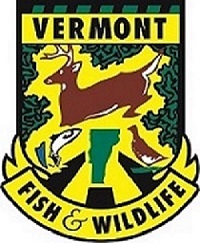
A timber harvest project at the Sandbar Wildlife Management Area (WMA) in Milton along Route 2 will begin soon to restore a unique and rare sandplain forest natural community that will benefit many wildlife and plant species, according to Vermont Fish and Wildlife Commissioner Christopher Herrick.
“We are collaborating with the Vermont Department of Forests, Parks and Recreation on this project to restore the native pitch pine and oak habitat,” said Herrick. “Sandbar WMA has one of the largest remaining examples of this increasingly rare habitat in Vermont. Sandplain forests have been lost primarily to development, and there are only a few examples left of this size in Chittenden County.”
“The timber harvest will remove red pine as well as the non-native black locust and Japanese Larch,” says Wildlife Biologist John Gobeille. “The black locust is very invasive.”
“There should be a very good response by wildlife once the project is completed,” added Gobeille. “There will likely be a lot of re-growth of aspen and gray birch for deer browse and new feeding areas for wild turkey. Shrub development will be beneficial for shrub-nesting songbirds such as indigo bunting and eastern towhee.”
“Forest raptors will also benefit from the new hunting areas. The release of oak in the understory and the pitch pines will eventually promote more mast, (nuts and berries) for wildlife. The existing large pitch pines will be retained and should experience larger seed crops once their canopies are released and will allow more germination of this characteristic species of sandplain habitat.”
A prescribed burn to help establish pitch pine and oak is planned for red pine plantations on the area after logging is completed.
For Immediate Release: December 9, 2021
Media Contacts: Christopher Herrick 802-839-0660, John Gobeille 802-324-6096, John Austin 802-371-9895
